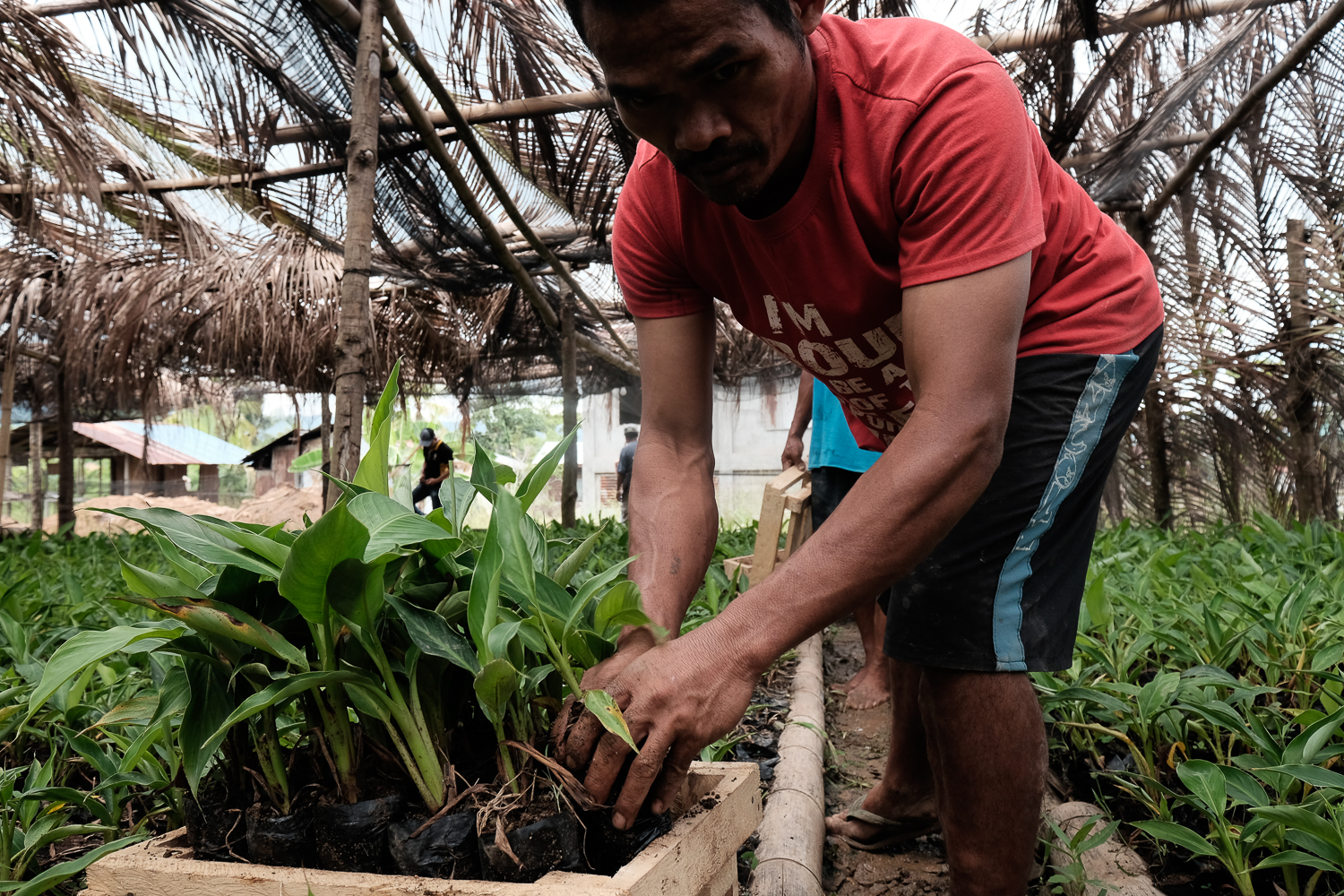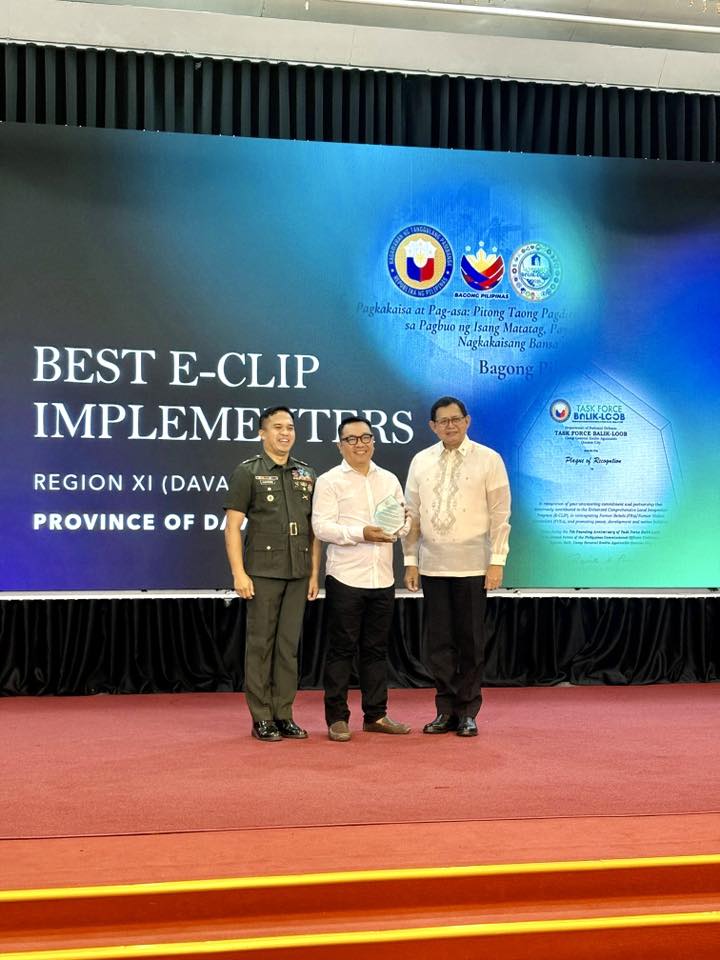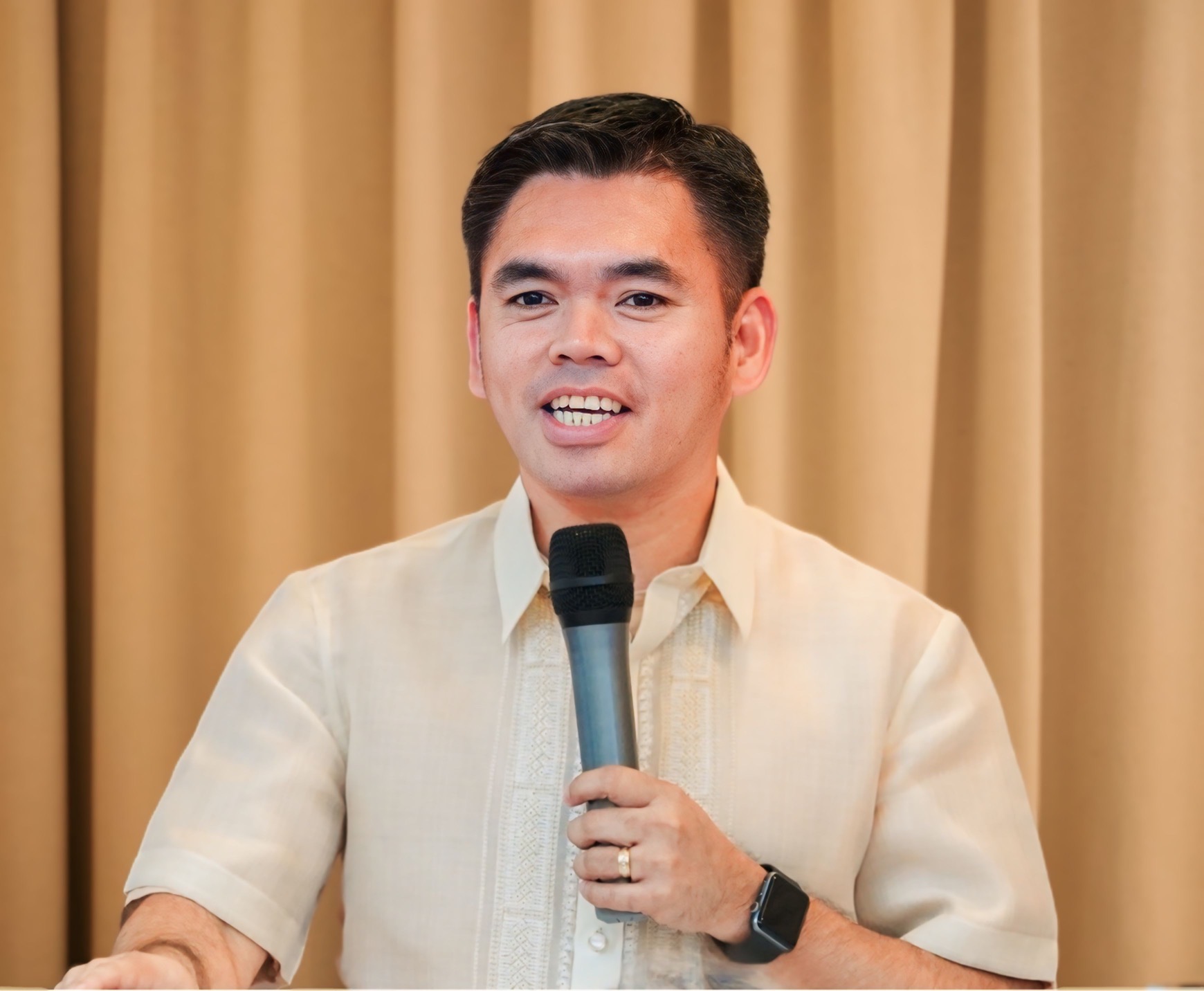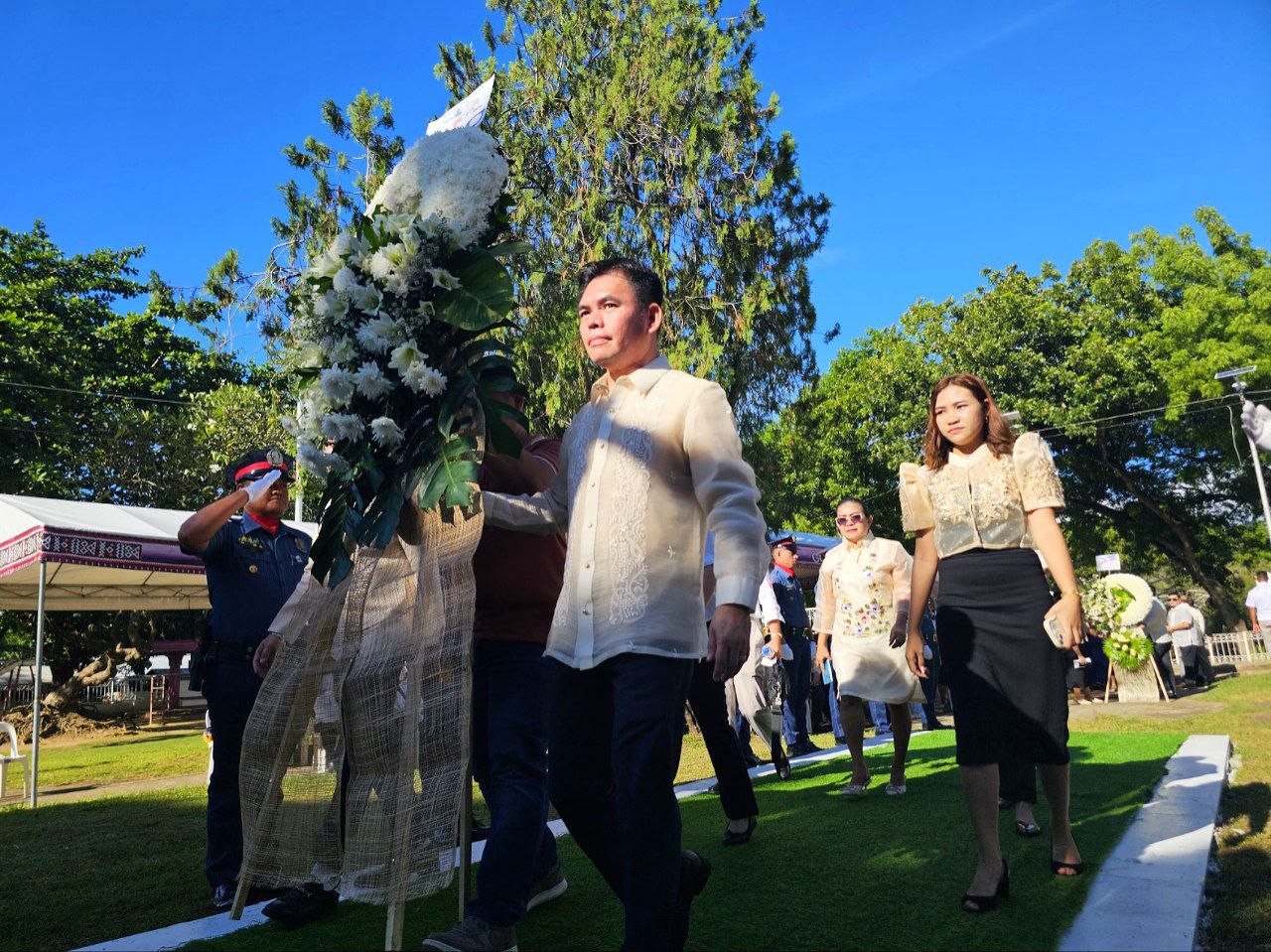DAVAO ORIENTAL—A total of 50,000 abaca plantlets have been distributed to the farmers in the Municipality of Boston in a turn-over ceremony held on October 11.
The recipients include 225 abaca farmers from eight barangays in Boston namely: Caatihan, Cabasagan, Cauwayanan, Poblacion, San Jose, Sibahay, Simulao, and Carmen where the turn-over ceremony was held.
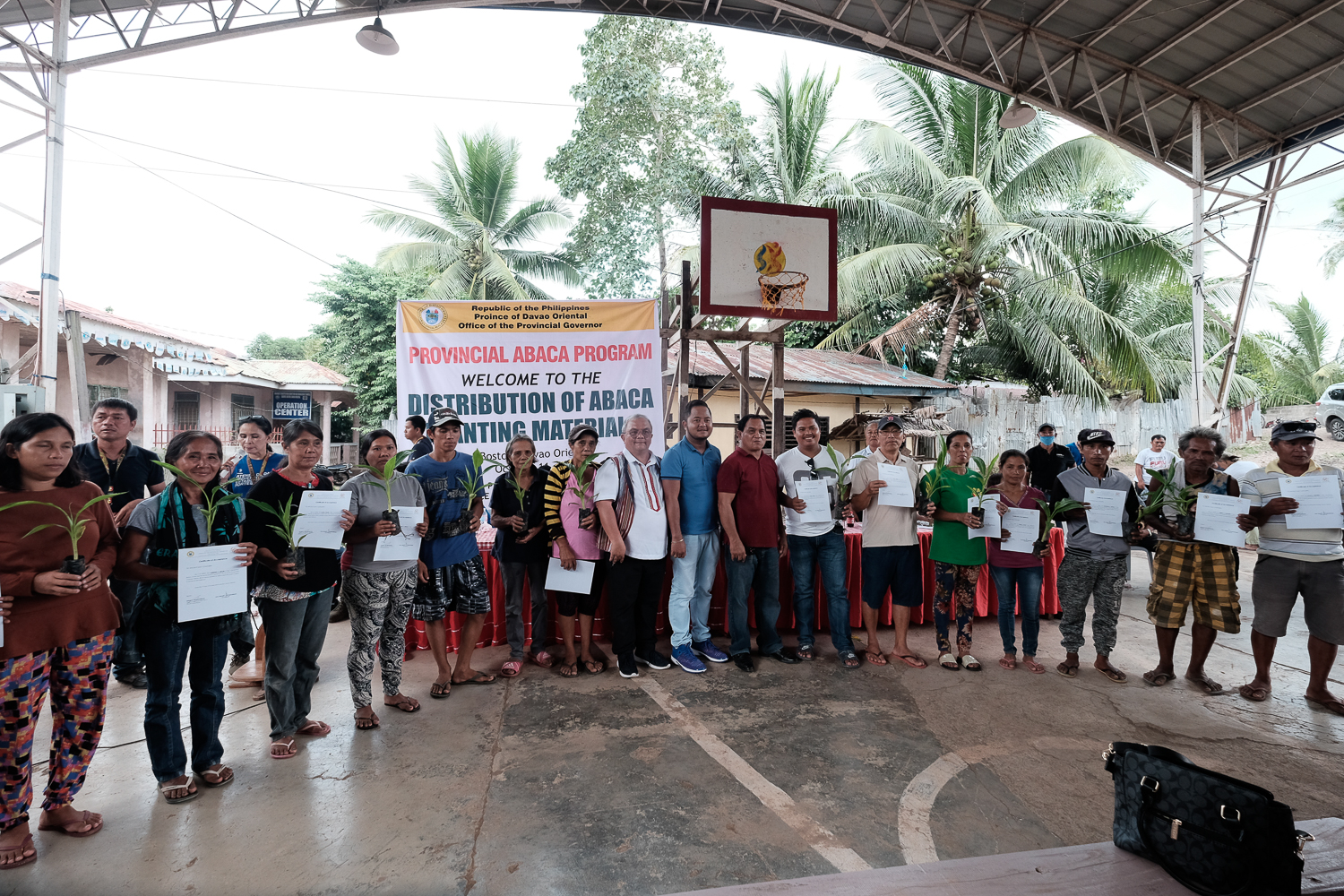
The distribution of abaca plantlets is under the Provincial Abaca Program with a funding of P5 million from the Payapa at Masaganang Pamayanan (PAMANA) program of the Office of the Presidential Adviser on the Peace Process (OPAPP).
Provincial Chief of Staff Ednar Dayanghirang, who is also the OPAPP focal person of the province, said that the activity is in line with the province’s bid to alleviate poverty by revitalizing the abaca industry after the devastation of Typhoon Pablo back in 2012.
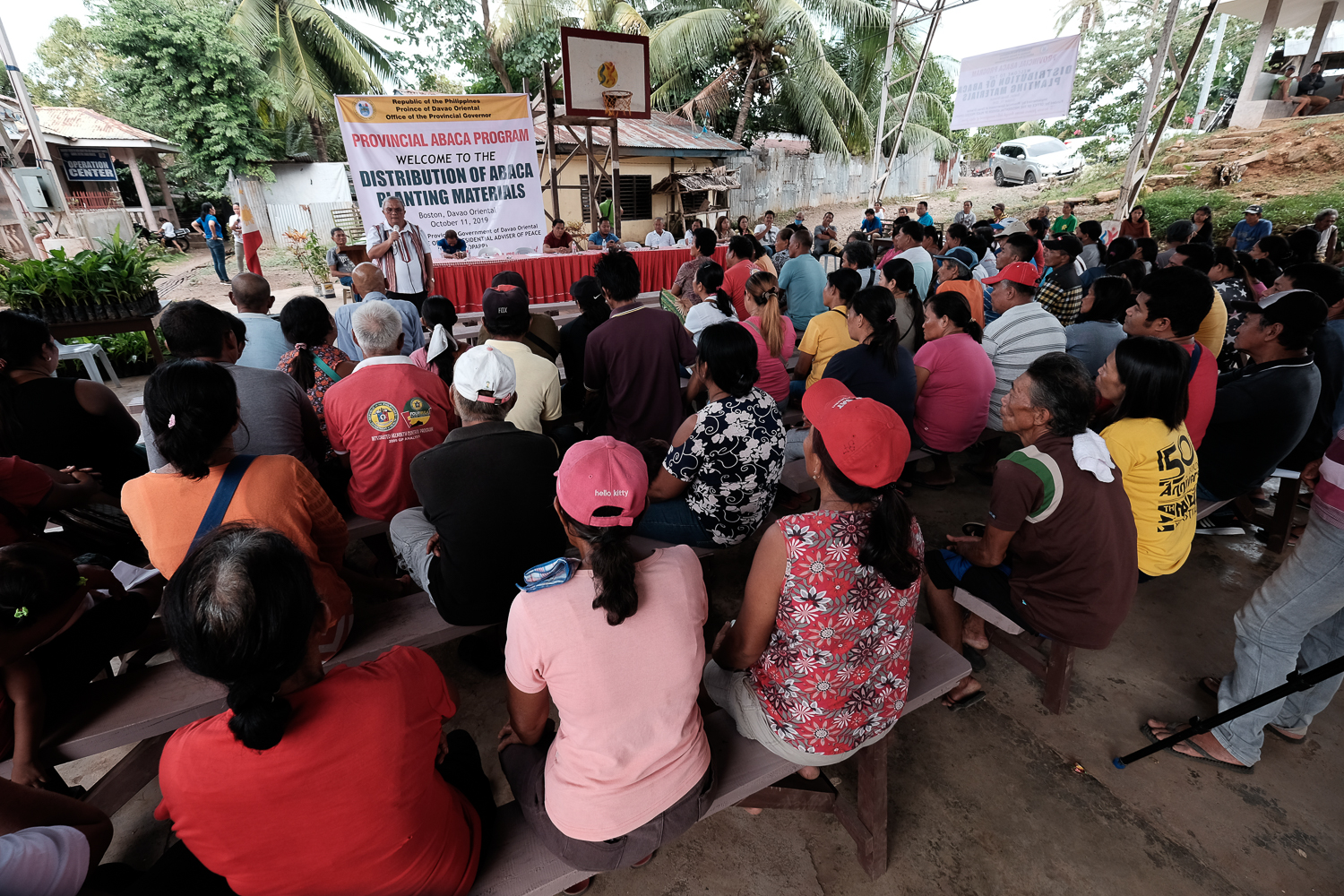
He said it is also in line with the implementation of President Rodrigo Duterte’s Executive Order 70 or the Whole-of-Nation Approach in Ending Local Communist Armed Conflict and Governor Nelson Dayanghirang’s Inclusive Governance Framework.
“We want to win the hearts and minds of the people so that they won’t be easily influenced by the insurgent groups like the CPP-NPA-NDF. So, this is already an expressed manifestation of support to the people’s livelihood in the context of EO70 of our President,” he said.
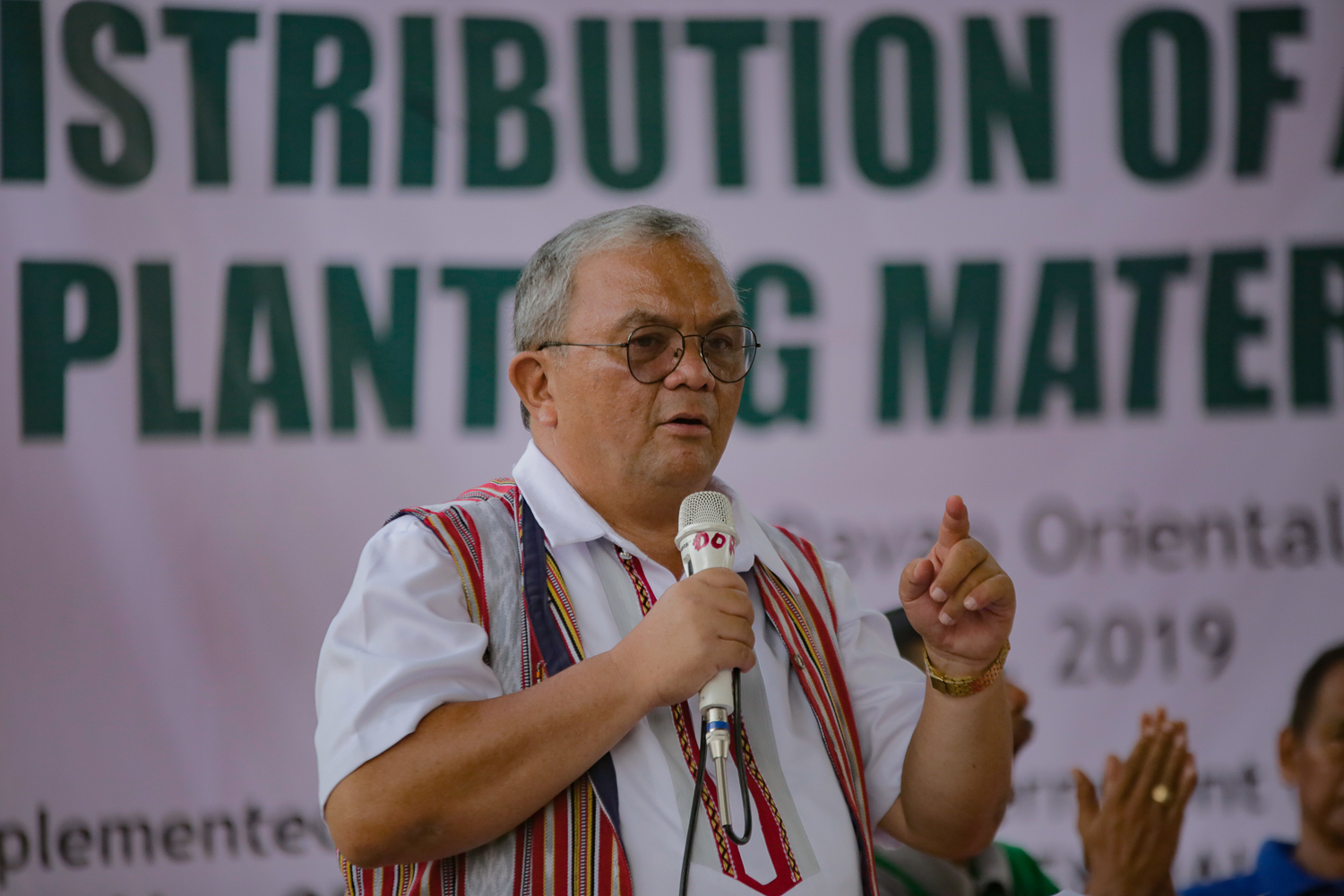
“In accordance with the governor’s inclusive policy, we have consulted the municipal leaders as well as the tribal leaders in identifying this project because 6 of the 8 barangays here are included in the ancestral domain, or the CADT. So, the provincial government really gives priority to our Mandaya brothers and sisters in the ancestral domains based on their needs,” he added.
Present during the ceremony are Municipal Mayor Rowell Rosit, Vice Mayor Eleuterio Manaytay, and the Punong Barangays of the 8 communities.
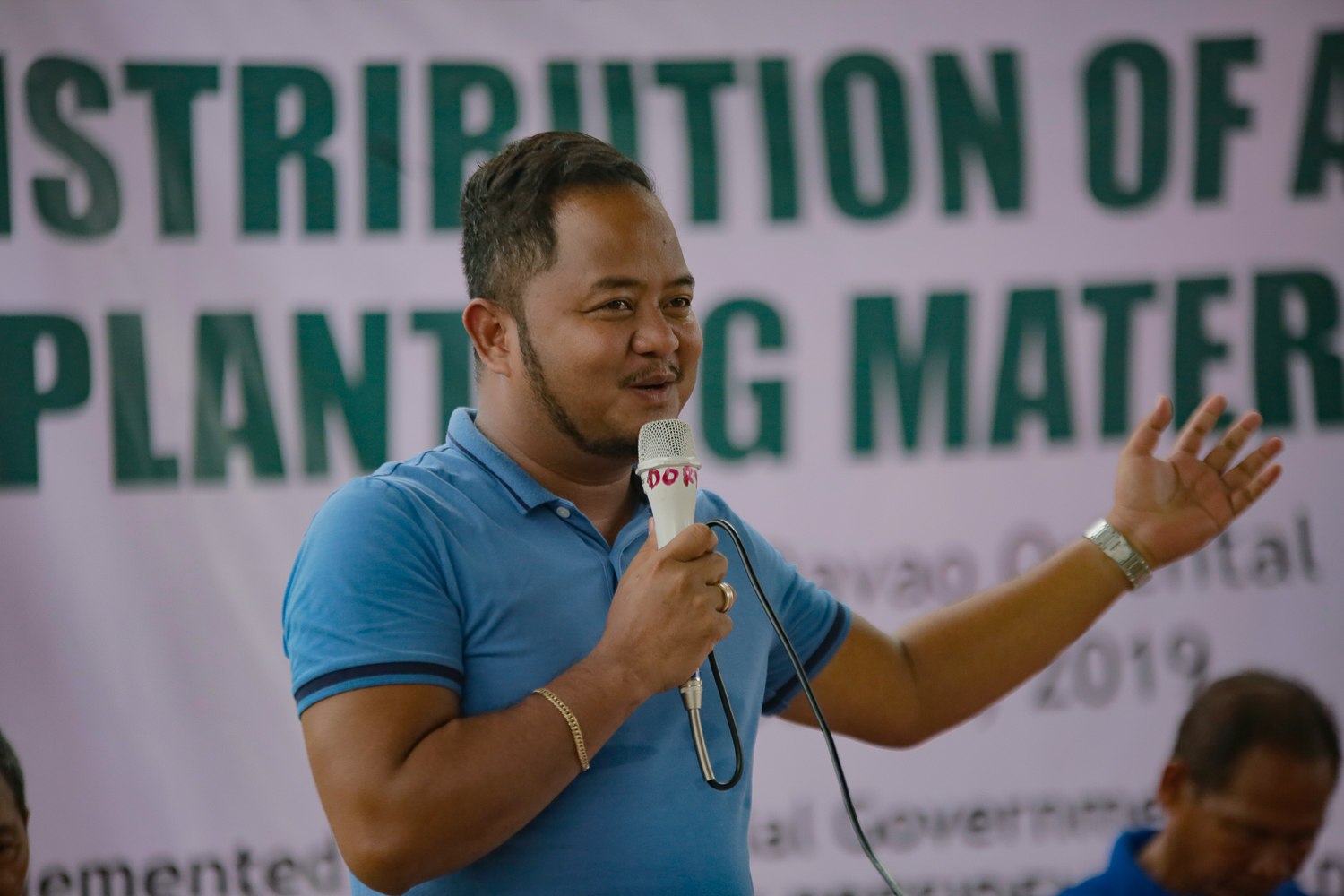
In his message of support, Mayor Rosit urged the beneficiaries to do their part in improving their livelihood. “You have to take care of this crop because in just two years, you can already benefit from it,” he said.
Vice Mayor Manaytay also expressed his gratitude to the Governor for giving priority to the Mandaya Indigenous communities in the municipality.
“We are very lucky to have been given by the provincial government P25 million funding, and abaca program is only part of it,” said Manaytay.
Grateful Farmers
Projected to boost the farmer’s income, beneficiaries have expressed their thanks to the government.
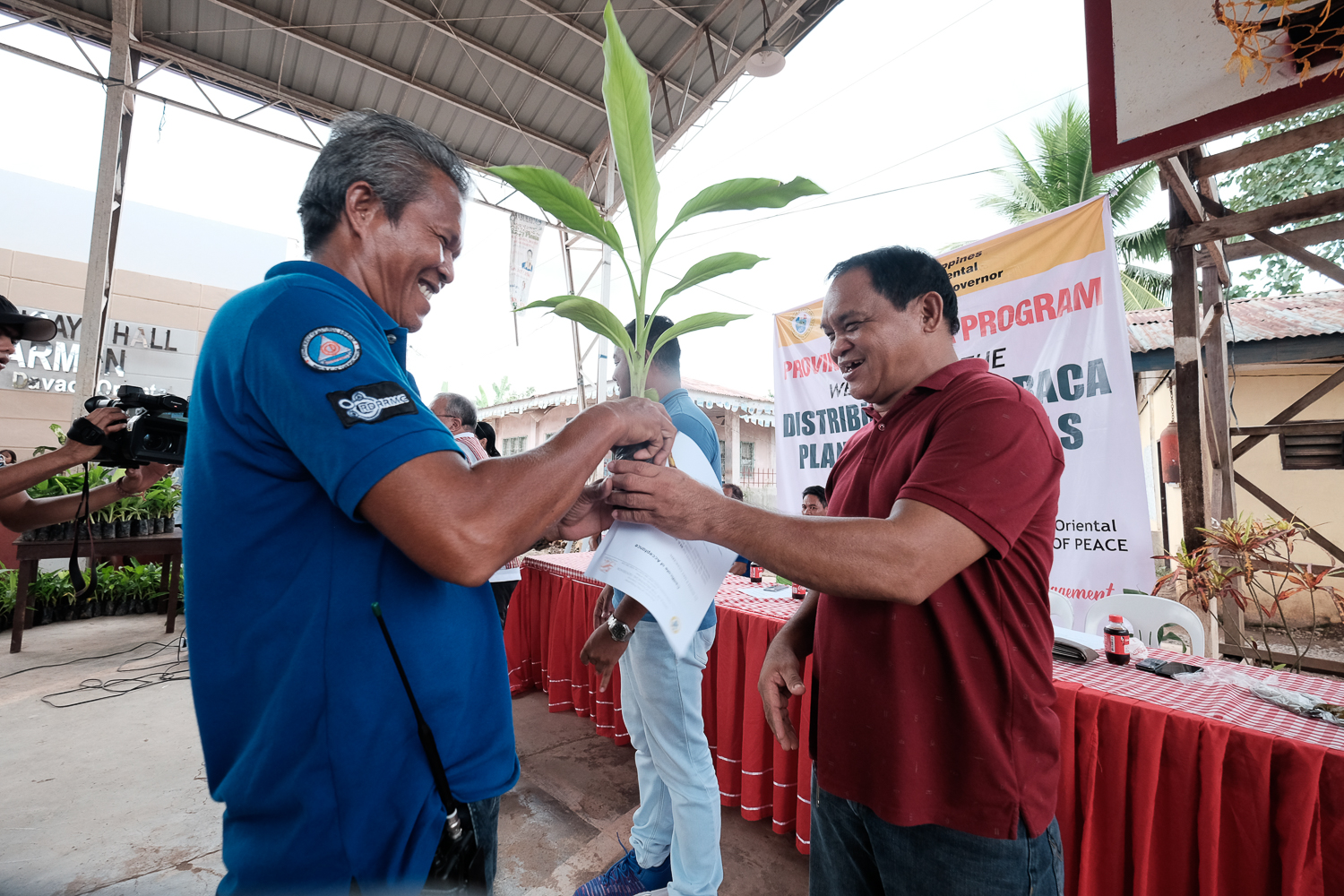
“I am very thankful to the Provincial Government because this is a big help for us to increase our income from abaca. This is a new opportunity for us,” Jerry Latiban said.
“Abaca farming has sustained my family’s needs that is why I am really thankful for the seedlings. We are expecting to increase our income and it is very timely because my children will be going to school next year,” said Rubilyn Brano who has been planting abaca along with other crops.
Carmen Punong Barangay Evencio Butulan said that abaca is really the “major source of income for the people in the hinterlands.”
“In as early as eight months, abaca can already be stripped by hand. Currently, the villagers here sell an average of 5,000 to 6,000 kilos and this is expected to increase in the next 18 months. So, to our dear Governor Nelson Dayanghirang, thank you for looking into the needs of the poor farmers in our municipality,” said Punong Barangay Butulan.
Program Sustainability
While the program is already implemented in all municipalities, Mr. Ednar Dayanghirang said that they are planning to put up nursery in every barangay to capacitate farmers on abaca seeds propagation. The establishment of abaca nursery is one of the components of the Provincial Abaca Program. Other components are the Abaca disease eradication activity, abaca expansion rehabilitation, and livelihood training and support.
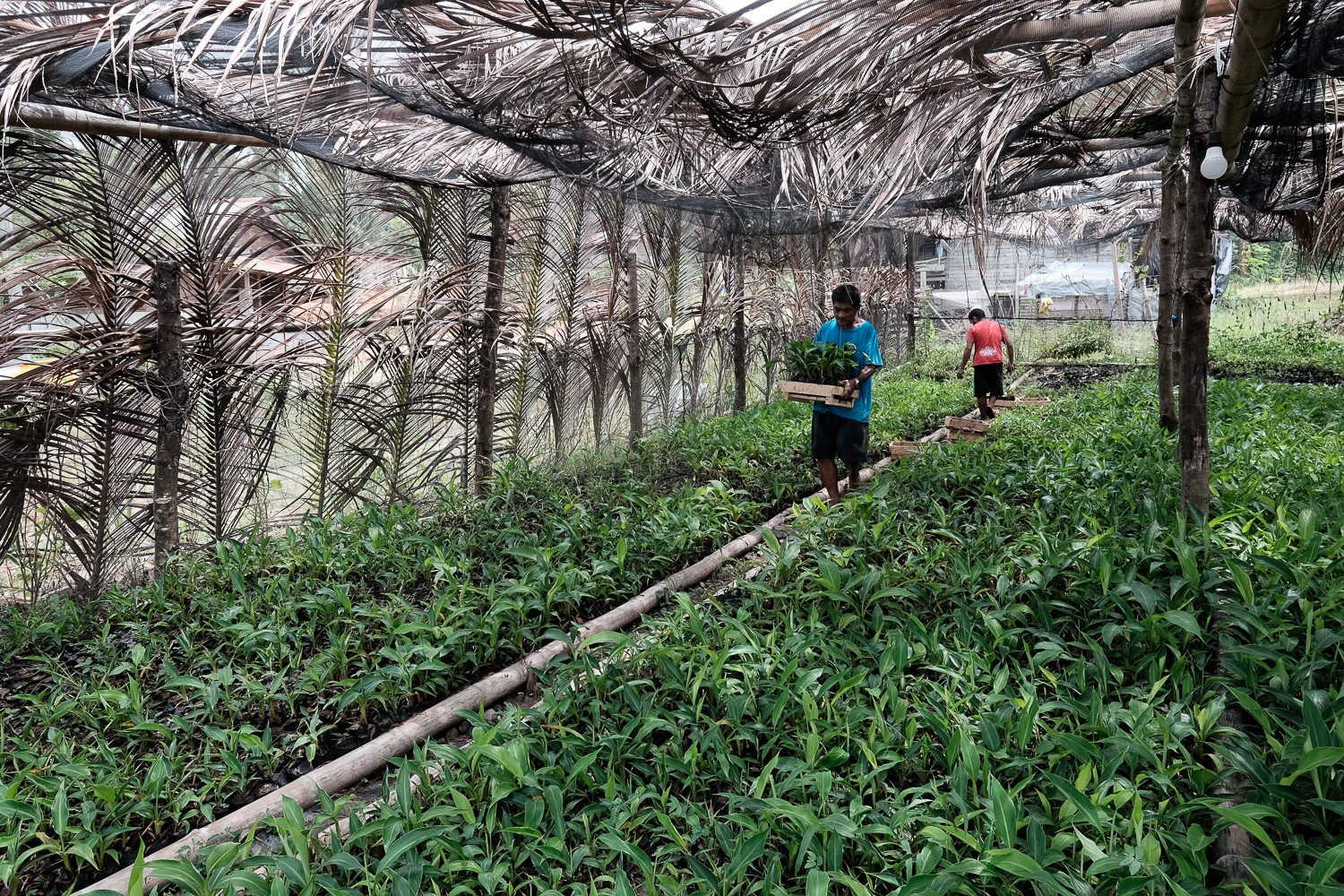
In Boston town, a nursery has already been established which has a capacity to produce 250,000 abaca plantlets.
“After a few months we will put up nursery in every barangay so that they will learn the technology on seed propagation which we also copied from the Fiber Industry Development Authority,” he said. By Riza M. Golez/Photos by Eden Jhan Licayan

